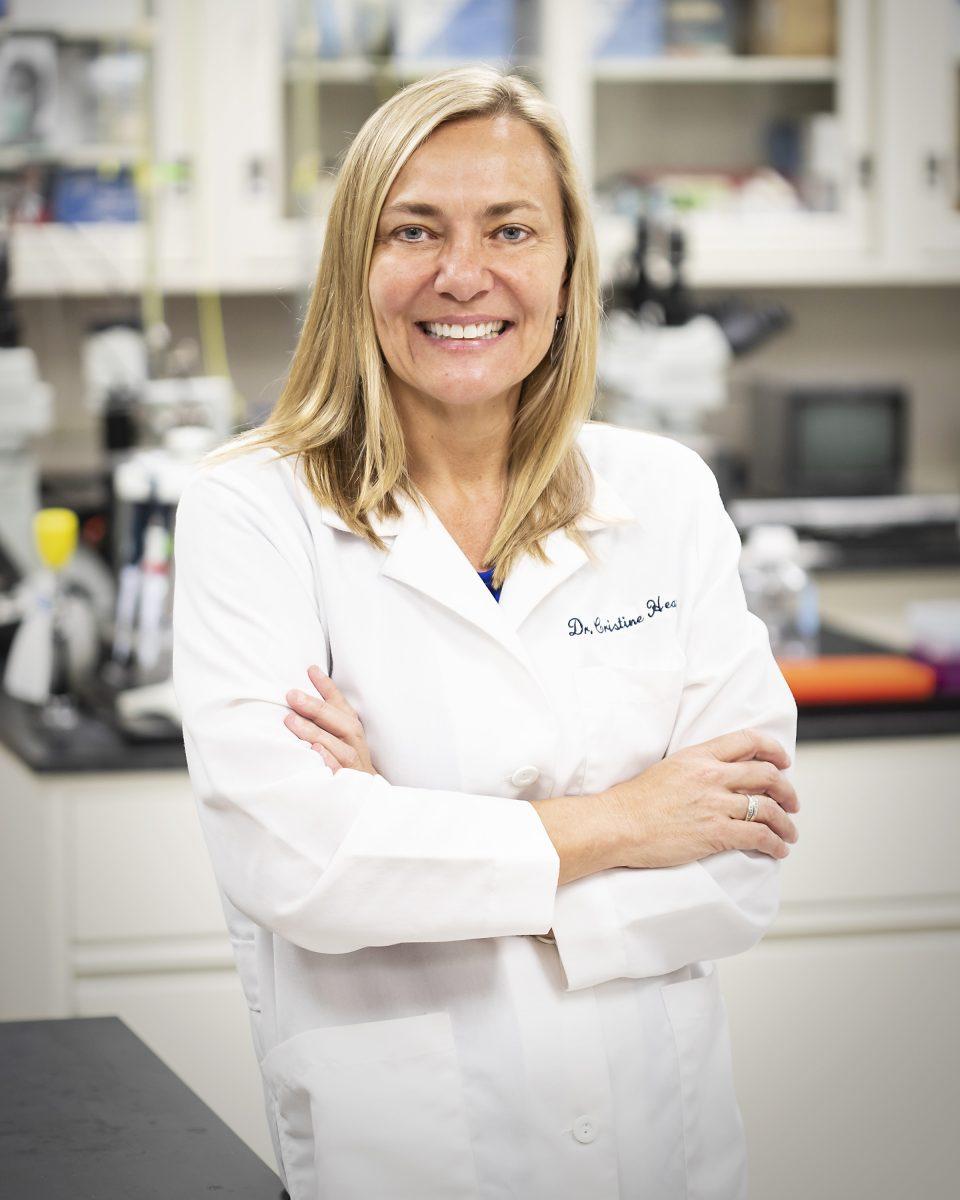Texas A&M professor Cristine Heaps has received a $2 million grant from the National Institutes of Health (NIH) to study how exercise helps in the prevention and treatment of heart disease.
Regular exercise is beneficial to the body and is known to reduce the risk of numerous medical issues. However, little is known about how exercise specifically affects the prevention of heart disease.
Heaps, an associate professor in the Department of Veterinary Physiology and Pharmacology at A&M’s College of Veterinary Medicine & Biomedical Sciences (CVM), has extensive experience researching how the human heart functions under various conditions.
“Heart disease is the leading cause of death in both men and women in the U.S., with projected annual costs of over $100 billion in health care expenses and lost productivity,” Heaps said. “The goal of our research is to determine the adaptations that occur with exercise training and how those contribute to the prevention and treatment of heart disease.”
Regular exercise is beneficial to the body and is known to reduce the risk of numerous medical issues. However, little is known about how exercise specifically affects the prevention of heart disease.
Heaps, an associate professor in the Department of Veterinary Physiology and Pharmacology at A&M’s College of Veterinary Medicine & Biomedical Sciences (CVM), has extensive experience researching how the human heart functions under various conditions.
“Heart disease is the leading cause of death in both men and women in the U.S., with projected annual costs of over $100 billion in health care expenses and lost productivity,” Heaps said. “The goal of our research is to determine the adaptations that occur with exercise training and how those contribute to the prevention and treatment of heart disease.”
Heaps received the $2 million research project grant to investigate the effect of exercise on coronary heart disease. According to the CVM website, this grant is one of the largest of its kind awarded to a single investigator in the CVM’s history.
Heaps said the research project examines the control of blood flow to the muscle from both healthy and diseased hearts.
“The function of the heart is very important because the heart is what supplies blood to the rest of the body,” Heaps said. “If the heart is not functioning properly, the rest of the body does not get sufficient blood flow and cannot function at its best.”
Undergraduate and graduate students have opportunities to participate in many of the research projects in Heaps’ laboratory.
“One of my favorite parts of our project is giving students what is often their first exposure to a research environment and providing them with very novel experiences that will contribute to their education and knowledge base, and remain with them for a lifetime,” Heaps said. “Our project would not be successful without the contributions of these talented and dedicated individuals.”
Heaps said the research project examines the control of blood flow to the muscle from both healthy and diseased hearts.
“The function of the heart is very important because the heart is what supplies blood to the rest of the body,” Heaps said. “If the heart is not functioning properly, the rest of the body does not get sufficient blood flow and cannot function at its best.”
Undergraduate and graduate students have opportunities to participate in many of the research projects in Heaps’ laboratory.
“One of my favorite parts of our project is giving students what is often their first exposure to a research environment and providing them with very novel experiences that will contribute to their education and knowledge base, and remain with them for a lifetime,” Heaps said. “Our project would not be successful without the contributions of these talented and dedicated individuals.”
Heaps said exercise creates adaptations that directly improve the health of the heart and reduce many of the risk factors associated with heart disease, such as high blood pressure, high cholesterol and obesity.
“Recommended exercise is 150 minutes per week of moderate activity [such as brisk walking] plus muscle strengthening exercises two days per week,” Heaps said. “However, for those that don’t like to exercise, keep in mind that some physical activity is better than none and some health benefits can be gained by participating in any amount of physical activity.”
“Recommended exercise is 150 minutes per week of moderate activity [such as brisk walking] plus muscle strengthening exercises two days per week,” Heaps said. “However, for those that don’t like to exercise, keep in mind that some physical activity is better than none and some health benefits can be gained by participating in any amount of physical activity.”
Heaps said her passion for sports inspired her research field. Her strong athletic background involved playing numerous sports as a child and in high school. Heaps was also an avid runner and cyclist during college and graduate school.
“I have always found the human body and how it works fascinating,” Heaps said. “I remember having the anatomy coloring book as a kid and I loved learning about the different parts of the body and the functions of the parts. My research allowed me to merge these two passions. As a result, I really like my job and look forward to coming to work every day.”
More information on Heaps’ research is available on the NIH website at tx.ag/heaps.
More information on Heaps’ research is available on the NIH website at tx.ag/heaps.




















